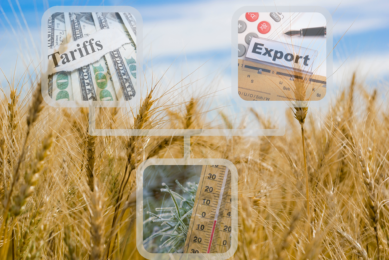5 EU members given greenlight to ban Ukrainian grain

The European Commission (EC) has given 5 of Ukraine’s neighbours the green light to ban domestic sales of Ukrainian grains until the middle of September (15 September).
Bulgaria, Hungary, Poland, Romania and Slovakia has received permission to impose the ban following complaints that Ukrainian imports were flooding their markets and driving down prices.
Cheaper grain flooding market
They had complained to the Commission that the European Union’s liberalisation of trade had meant cheaper grain flooding in, making domestic production unprofitable.
The Commission, which oversees trade policy in the 27-nation EU, had allowed the 5 nations to set restrictions on imports of wheat, maize, rapeseed and sunflower seeds but the exception was due to run out this week.
The grains can still be exported to other EU member states further afield. The Commission had said a month ago that it could extend the restrictions if exceptional conditions persisted.
Ukraine’s reaction to ban
In response, Ukraine’s agricultural ministry described the Commission’s move as “inappropriate”, adding that it hoped it would not be further extended in the autumn
Grain corridor
Since the beginning of the Russian invasion of Ukraine last year, grain exports have been severely disrupted. The UN agreement brokered the Black Sea Grain Initiative in July 2022 to open a safe maritime humanitarian corridor in the Black Sea has enabled more than 30m tonnes of grain and other foodstuffs have been exported, helping ease the global food security crisis and lower grain prices.
Ukrainian Crops exported
The European Commission has said that most of the cargo exported has been:
- maize (50%)
- wheat (28%)
- sunflower products (11%)
- and others (11%)
- with 64% of the wheat and 51% of the maize exported through the Black Sea reaching developing countries.
The United Nations World Food Programme is also shipping wheat from Black Sea Ports. Since the start of the initiative in August 2022, over 625,000 tonnes of wheat have left Ukrainian ports to Ethiopia, Yemen, Afghanistan, Sudan, Somalia, Kenya and Djibouti.











